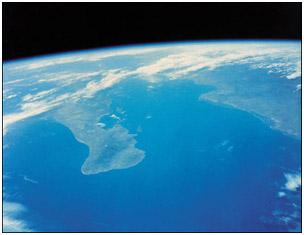Air Quality and Climate Change Research

Air quality can be impacted by climate change and, conversely, climate change can impact air quality.
Emissions of pollutants into the air can result in changes to the climate. Ozone in the atmosphere warms the climate, while different components of particulate matter (PM) can have either warming or cooling effects on the climate. For example, black carbon, a particulate pollutant from combustion, contributes to the warming of the Earth, while particulate sulfates cool the earth's atmosphere.
Climate changes can result in impacts to air quality. Atmospheric warming associated with climate change has the potential to increase ground-level ozone in many regions, which may present challenges for compliance with the ozone standards in the future. The impact of climate change on other air pollutants, such as particulate matter, is less certain, but research is underway to address these uncertainties.
- Understand the influence of climate change on fine particulate matter and other air pollutions.
- Understand the interactions between naturally emitted compounds and man-made pollutants in the atmosphere.
- Identify co-benefits of reducing air pollutants that also reduce the impacts of climate change.
- Develop adaptation and mitigation options to reduce carbon dioxide, a greenhouse gas.
The scientific knowledge and tools developed by EPA are enhancing the ability of air quality managers to consider climate change in their decisions to protect air quality and to reduce the impacts of a changing climate.
Learn more about other Climate Change Research.
Related Topics
- Air Research
- Black Carbon Research - Black carbon is an air pollutant that contributes to warming of the atmosphere.
- Clean Cookstove Research - The majority of cookstoves used in developing countries emit greenhouse gases and black carbon, both air pollutants that contribute to warming of the atmosphere.
- GLIMPSE Model - a tool to find US policy scenarios that simultaneously improve air quality human health, reduce impacts to ecosystems, and mitigate climate change. It is designed to be fast -- to allow decision-makers to explore a range of options, as well as comprehensive -- to avoid unintended consequences.
- Community Multi-scale Air Quality Model
Publications
- Air Quality Publications for Climate Change Research
- Climate Publications for Air Research
